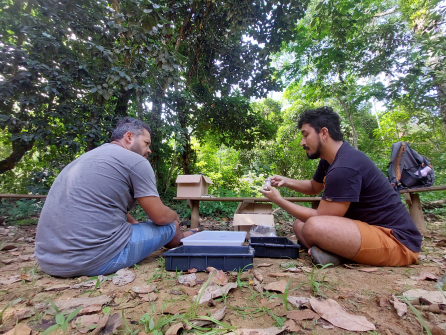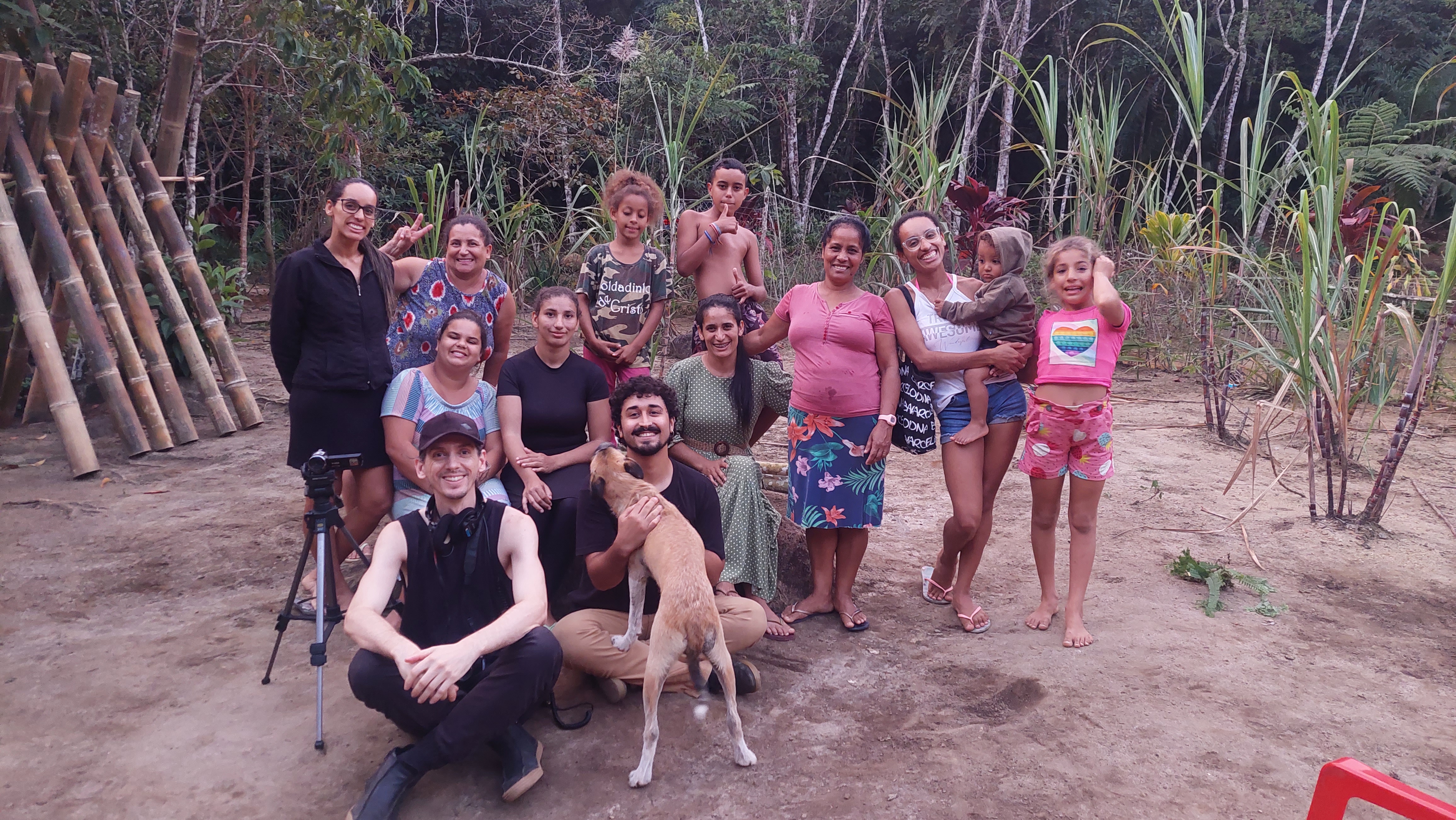About the Place
Situated in southeastern Brazil, in Ubatuba, São Paulo, the Quilombo do Camburi stands as a beacon of resilience and the embodiment of Afro-Brazilian culture. Amidst steep, preserved mountain slopes and the Atlantic Ocean, it was originally settled by escaped this territory is the cherished home of Quilombo do Camburi.
During the era of Portuguese colonialism in Brazil, Quilombos emerged as settlements for enslaved individuals during Portuguese colonialism. These communities established strong connections with their surroundings and developed relationships with Indigenous inhabitants through shared knowledge and observation, enabling survival.
Today, the Quilombo do Camburi community lives within the Serra do Mar State Park, a vast area of Atlantic Forest near São Paulo. While the park attracts many tourists, this influx negatively impacts Quilombo communities, leading to challenges like unsuitable urban development, poor sanitation, isolation, and the disproportionate effects of climate change.
Climate Change as a Risk Driver
Quilombo do Camburi faces growing threats from intense rainfall, evident from historical disasters and future climate forecasts. Projections indicate a shift towards erratic precipitation, characterized by shorter but more intense rainfall periods. This anticipated change heightens the community's vulnerability to flooding and landslides. The absence of local alert systems, disaster response plans, and adequate infrastructure leaves the community vulnerable, leading to isolation and food insecurity when traditional routes are damaged.
Indigenous Knowledge
The Quilombolas possess a profound understanding of their territory, including its geography, climate, natural resources, and environmental vulnerabilities. Their knowledge is crucial for conserving local ecosystems, identifying climate-resilient species and the prediction of extreme weather through traditional observation techniques.
Their sustainable agricultural practices tailored to local climates and soil management techniques are integral to food security and environmental sustainability. Their sustainable agricultural practices, like agroforestry backyards, support food security, environmental sustainability, and female empowerment, while reducing reliance on synthetic products. Additionally, Quilombola communities demonstrate cultural and social resilience through solidarity, cooperation, and community organization, strengthening their ability to confront climate change challenges.
Culture-Based Climate Actions Taken
"The Camburi Quilombo and Climate Changes" project empowered the Camburi Quilombola Community's cultural leaders, enhancing their understanding of climate risks and communication skills for climate change mitigation and adaptation. This facilitated constructive dialogues with public bodies, promoting the integration of their place-based wisdom into policies and actions.
Leveraging traditional knowledge of resource management to enhance Food security
Seed exchange fairs have significantly promoted sustainable agriculture and improved nutrition by providing farmers with diverse, climate-adapted seeds. A seed bank plant A seed bank and plant nursery have been vital in preserving plant species and protecting genetic diversity, ensuring a resilient agricultural system that can adapt to environmental changes.
Building climate awareness and preparedness
Environmental education in schools has raised the awareness of climate change impacts and environmental issues, fostering a generation committed to sustainability. Oral history recordings have identified highland areas safe from flooding, enhancing disaster preparedness by marking these areas as refuges.
Enhancing Disaster Preparedness Through Collaborations
Through the collection of oral history recordings, the team gathered valuable insights about highland areas that are typically resistant to the adverse impacts of flooding. These highland areas are a refuge for community members during floods, and they find safety in houses on higher grounds. By effectively conveying this indigenous knowledge and practice to the civil protection agency, safe escape areas were identified and marked to enhance the flood preparedness of the community, ensuring their safety and strengthening their resilience. This action is aimed at promoting inclusive urban development that can benefit future generations and maintain the community's way of life.
Climate Change Mitigation
Planting native trees and herbal gardens helps increase the green cover of the project site, and mitigate the risk of landslides. It also enhances carbon sequestration, contributing to biodiversity restoration and ecosystem sustainability.
Involvement of Key Stakeholders
Partnerships with organizations like the Agronomic Institute of Campinas and the National Center for Monitoring and Early Warning of Natural Disasters (CEMADEN) have strengthened flood preparedness, provided native species, and supported environmental education. Engaging local stakeholders ensures the long-term sustainability of these initiatives, preserving indigenous practices, traditional farming, and cultural heritage to fortify the community against climate-related risks.
Partnerships with organizations like the Agronomic Institute of Campinas, the National Center for Monitoring and Early Warning of Natural Disasters (CEMADEN), the municipal environmental department of Ubatuba, ICOMOS-Brazil, and the Tree Institute, have strengthened flood preparedness, provided native species, and supported environmental education. Engaging local stakeholders such as the Caiçara Herbal Garden, Schools for Quilombo children and teenagers, Web Forest NGO, TERRAMÃE Laboratory, Public Archeology Laboratory, and the Association of Friends and Residents of Camburi (AMAC) ensures the long-term sustainability of these initiatives, preserving indigenous practices, traditional farming, and cultural heritage to fortify the community against climate-related risks.


